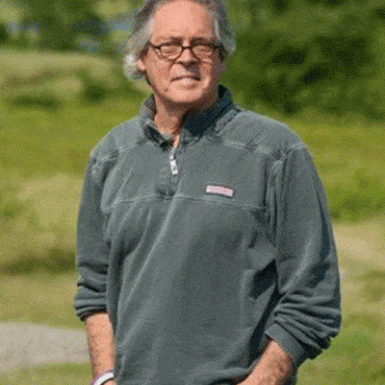Who Pulled the Plug on Hope for an Alzheimer’s Treatment?

Sign up and receive information on the latest news and updates.
Hope springs eternal…
But does it really today in this age of personal and professional second-guessing and gotcha?
If we wait for perfection, is there hope?
Wrote Alexander Pope, in the 1700s, considered among the foremost English poets in the 18th century:
“Hope springs eternal in the human breast;
Man never Is, but always To be blest.
The soul, uneasy, and confin'd from home,
Rests and expatiates in a life to come.”
— An Essay On Man
Pope, sadly, may not have been a poet before his time, but of his time.
Time understandably changes perspectives—from the pure hope of the past to more skepticism today—some of it needed, other not merited. The Book of Proverbs in the Old Testament addresses hope in more direct terms: “Where there is no vision, the people perish.”
Medical experts today, as they should to greater extent, focus more on the clinical definition of cure, which often does not take into consideration the definition of hope.
Take the recent case of Biogen’s drug therapy to treat early-stage Alzheimer’s and mild cognitive impairment.
Biogen’s new Alzheimer’s drug Aducanumab, distributed under the brand name Aduhelm, was approved by the U.S .Food and Drug Administration (FDA) on June 7 amongst debate—some of it predictable, other the medical equivalent of the Grinch that Stole Christmas.
Aduhelm is designed to reduce the buildup of amyloid protein plaques in the brain, the marker of Alzheimer’s. It’s the first drug on the market in decades that aims to slow the progression of Alzheimer's, not just treat the symptoms—a disease-modifying drug in a sea of hopelessness for the more than 6 million Americans and an estimated 44 million worldwide suffering from Alzheimer’s.
In its news release in June, the FDA announced that Aduhelm “was approved using the accelerated approval pathway, which can be used for a drug for a serious or life-threatening illness that provides a meaningful therapeutic advantage over existing treatments.”
Good news, right? Hope springs eternal?
“In theory, the approval of the first drug to treat Alzheimer’s disease would be cause for universal celebration,” wrote Alice Park and Tara Law in a Time piece. “But from the moment the FDA approved aducanumab…the drug has been beset by controversy.”
Skeptics questioned the efficacy of the new drug, various clinics refused to provide Aduhelm, and some insurers have declined to cover the cost.
From the beginning, no one at Biogen or elsewhere proclaimed that Aduhelm was perfect, but it was a start, offering credible pathways for Alzheimer’s patients—the will to press on, to take prudent chances.
For many of us, hope today is only prospect in fighting Alzheimer’s, but it evaporated like rain in the heat of the desert at the disconnect over Aduhelm.
Hope is personal to me. Years ago, I lost my maternal grandfather, my mother, my father, and paternal uncle to the disease, which now has attacked me in a slow, yet unrelenting breakdown of mind and body.
Over the last two years, I’ve lost more than a dozen friends to Alzheimer’s—women and men of all color and ethnic backgrounds.
Last Sunday, we spread the ashes over Cape Cod Bay of one of my best friends who died of Alzheimer’s. And just a few days ago, my brother-in-law passed away after a long fierce battle with this demon.
“We know there are some researchers who don’t believe the (Aduhelm) data (to be) as clear as they would want them to be,” Russ Paulsen, chief operating officer of UsAgainstAlzheimer’s, said in the Timepiece. “But the patients we’ve talked to say: ‘Let me have that choice. Let me have a chance.’”
Added Phil Gutis, 59, who has Alzheimer’s and was part of theAducanumab trial, “…I started getting angry because I feel like these doctors and researchers, they’re not putting themselves in our shoes. Why shouldn’t I have the opportunity to have a drug that might help me? I understand all the caveats and the concerns, but this is a fatal disease, and there’s no treatment available.”
Concluded Geri Taylor, also a part of the Aducanumab trial, “I’m looking forward to having this help so I can go about my daily business.”
Last November, at the FDA advisory board hearing on Aducanumab, I spoke in support of the drug on grounds of hope: “We have in this country some of the brightest minds in the world, but Alzheimer’s has been a Rubik’s Cube for which there – so far – is no winning solution… After years of great disappointment in drug trials for those (of us) in the throes of urgency as our minds decline, please offer us some hope.”
And so, please let hope spring eternal here. For if we wait for perfection, there is no hope. Someone will have pulled the plug on it…
